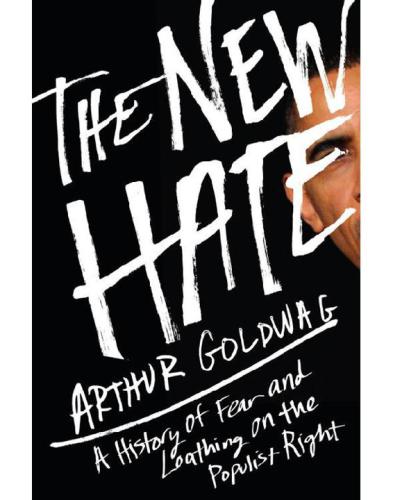
The New Hate
A History of Fear and Loathing on the Populist Right
کتاب های مرتبط
- اطلاعات
- نقد و بررسی
- دیدگاه کاربران
نقد و بررسی

December 19, 2011
Goldwag (Cults, Conspiracies, and Secret Societies) delivers an informative and lively history of organized hate groups and their role in U.S. politics. Less about prejudice than America’s “relentless quest for scapegoats,” he traces the American conspiratorial tradition from colonial times—where the Puritans feared Jesuit conspiracies as much as Indian ambushes—to the present, covering the movements and vitriolic commentary against the Masons, Catholics, Jews, Communists, and Muslims. A witty narrator, Goldwag combines his research with contemporary analysis to explain what conspiracy theories all have in common and to show how the new hate is the same as the old, though it’s now “hiding in plain sight.” The only thing different, which the election of the country’s first black president brought into sharper relief, is how much more mainstream hate has become thanks to the Internet and 24-hour cable news shows, with the populist Right’s obsessions becoming talking points for supposedly mainstream politicians to gain advantage with voters. The book is exhaustively well researched and passionately written, though Goldwag sometimes veers off to cover very obscure figures. Yet whether he’s analyzing the origins of Glenn Beck’s ideology or demystifying the Illuminati, Goldwag excels at showing how the obsessions of the past connect with those of the present. Agent: Victoria Skurnick, the Levine Greenberg Agency.

Starred review from December 15, 2011
A well-reported study of disaffected groups who hate other groups whose members look or think differently than the haters. In his latest book about ideologies, freelance writer and editor Goldwag (Cults, Conspiracies, and Secret Societies, 2009, etc.) transcends numerous other books warning about the dangers of political conservatives who have assumed influence during the administrations of Reagan and the two Bushes. These haters—given voice by such high-profile individuals as Glenn Beck, Rush Limbaugh, Ann Coulter, Michael Savage and Michelle Malkin—worry about far more than who controls American politics. They worry about the atmosphere of family life, classrooms, corporate workplaces, public parks and just about every other venue where values antithetical to their own might seep into impressionable minds. Goldwag terms the phenomenon "the paranoid style of hatred," and shows how that style has been linked to conspiracy theories for hundreds of years. The author examines with special depth hatreds against Jews, Catholics, Freemasons, African-Americans and the extremely wealthy. With the election of President Obama, the haters coalesced against what they saw as an obvious enemy. Goldwag is able to effectively use the hatreds toward Obama to illustrate the irrationality of the haters. Given that many, perhaps most, paranoids exhibit some form of brain dysfunction and that undocumented conspiracy theories in general are linked to instability, Goldwag could have written off the haters as mentally ill. Instead, he treats their hatreds as something to be seriously researched because of their undue influence on the tenor of electoral politics, as well as almost every other aspect of daily life in America. A provocative, intellectually rigorous book written clearly and with an admirable lack of hatred.
(COPYRIGHT (2011) KIRKUS REVIEWS/NIELSEN BUSINESS MEDIA, INC. ALL RIGHTS RESERVED.)

January 1, 2012
Turns out, the new hate is pretty much the same as the old hate, according to Goldwag. No doubt drawing from research compiled for his 'Isms & 'Ologies (2007) and Cults, Conspiracies, and Secret Societies (2009), the author identifies the historical American precedents of primarily right-wing demagogueryamong them, anti-Masonry, anti-Catholicism, the Protocols of the Elders of Zion, Henry Ford, and McCarthyismwhose echoes can be heard today over the airwaves and in print. It's hardly enjoyable reading, churning up as it does the long-standing animosities that run deep in American politics and continue to distract the country from addressing real issues; in addition, the text, as well researched as it is, could have used a lot more coherence. Still, identifying demagoguery, on the Right or the Left, might help readers work through it in the coming years. Would November 2012 be too soon?(Reprinted with permission of Booklist, copyright 2012, American Library Association.)

























دیدگاه کاربران